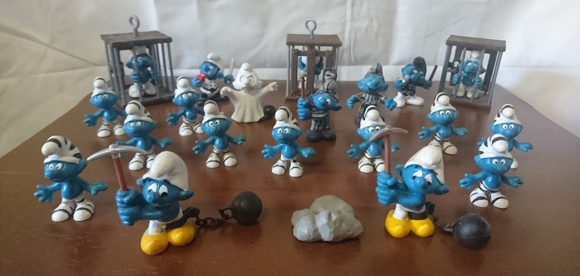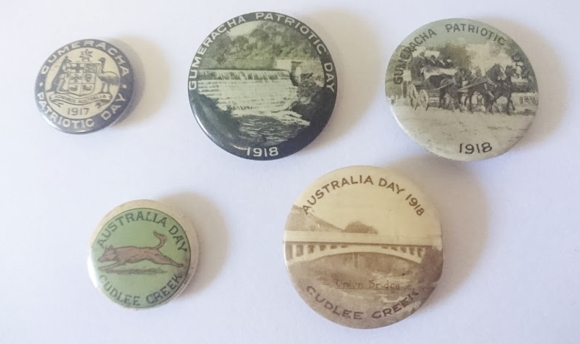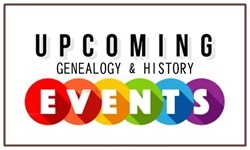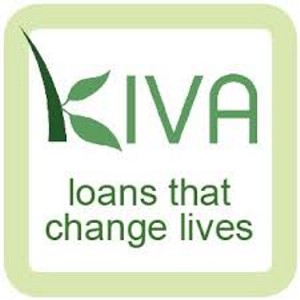Yes Folks, Genealogy DOES Cost Money!
The commercialisation of genealogy, and genealogy costing money is not a new topic, as it’s one that seems to pop-up every now and then.
This post is one that stems from comments I saw on Facebook from someone who is convenor of a genealogy-related Facebook Group who said she wouldn’t share any post (no matter how relevant or useful) if the blog had adverts on it, simply because they didn’t wish to promote commercial genealogy. This led to numerous comments asking why.
Personally I don’t agree with this woman, as we should do all we can to help preserve our records and history, commercial or otherwise.
MY DISCLAIMER
Before I go on let me just state up front, that yes I do work in a genealogy bookshop, Gould Genealogy & History (www.gould.com.au). Yes, it is a commercial business, and currently lists about 7000 products on our website. No, it doesn’t make bundles of money, but we do have wonderful customers who have kept our little family business going for over 40 years.
Would the fact that I work in the genealogy industry influence my opinion? I doubt it. Or maybe it has, as I see the work that goes into caring, restoring, archiving, housing and digitising records, and I know that it ALL costs money, so I have no objection when paying my subscription fees to various online websites, or to a number of societies and so on.
THERE IS FREE STUFF
For sure you can do a lot for free, and I do not condemn that in any way. In fact, I promote the use of free sites (just check my list of Discovering Links posts, and Facebook Links). But during your genealogical journey there comes a time when you need to order a certificate, pay for a researcher, join a society, buy a subscription to a website or magazine (or both), buy a book to help your with your search, or even a DNA kit or two. So as you see it’s not ALL free.
Despite that, there is an anti-commercialism feeling from some people in the genealogy scene. I don’t know why, but I do know it’s there.
THE QUESTION
Here’s a question, how many of you have been able to view ORIGINAL RECORDS online? By that I mean the scanned images of the originals? I have, and to say it is very cool is an understatement. Wills, land records, parish chest records, shipping lists and so on … it is super exciting to see them, yet without funding for preservation, archiving and digitising we just wouldn’t have these records available.
Just think, a few years ago the only way to see them (apart writing and getting photocopies) would have been to travel to that region and go to the local archive. So the fact that you can see them from home, even in your pyjamas if you wish, is simply AWESOME … and it saves you money on airfares! And yes, a subscription can cost several hundreds of dollars, but that’s STILL cheaper than an airfare!
BUT PAYING FOR GENEALOGY?
“The information is public and should remain free to all of us and not be the property of some private company.” This is common complaint from people. And it’s one that I’ve partly covered above. If a record was free from a society or archive, and is now on a pay website that doesn’t mean that the free record is no longer available if you go to (or get in touch with the society or archive). It simply means you can now access it easier from your own home, online, but to do so yes, you’ll have to pay. It also means that the society or archive has possibly been paid some money which will go towards helping store those and other original records better for the future.
Subscription Sites
Paying money for a subscription simply means that you are giving that company money to then be able to negotiate with another archive to obtain and digitise their records, which helps everyone in the long term.
Societies
Societies rely on membership money as that enables them to continue to pay rent and pay the other regular bills for their premises, continue to collect books and records, update their website, and sometimes have guest presenters speak at their meetings. Some even have a small bookshop and sell products to their members, which help supplement their income.
Researchers
It’s a general fact that there’s not a lot of money to be made in genealogy research, so if a researcher has adverts, or uses affiliate links to supplement their income why is that considered wrong? You as a customer don’t pay more for their services, and it helps them out a little.
Authors
If a genealogical researcher or speaker writes a book, is it wrong that they spruik it? Surely not? A number of authors I know have adverts of the books they’ve written on their website, and so they should. It takes not only a whole lot of knowledge, but a lot of time and money to write and publish a book, and yet, unless you sell many thousands of copies, you’re simply making peanuts. Still here they are sharing their expertise, to help you and others, with research, so good on them. Buy it and support them.
Other hobbies
Model trains, fishing, knitting, papercraft, you name it, people are happy to pay for their hobby, yet when it comes to genealogy many say ‘it should be free’. I don’t believe so, as it really is helping to preserve our records and our history.
TELL ME ..
For those who’ve read this far and totally disagree with me, just answer this one question, WHY do you believe genealogy should be free?
Yes … I’m a Collector
For some reason this kinda feels like a confession. “Hi, my name is Alona, and I’m a collector”.
So just when does an interest in something suddenly turn into collector status? I figure if you have 1 or 2 items in your collection, it is an interest. Item 3-5 … there’s twinges of a collector starting, 5 and after … admit it, you are a collector. And after 10, you’re a die-hard.
Some people seem to have more of an affinity for collecting, others probably start because of a certain something. Me … well I’ve sort of been a collector for a long time.
The Cambridge Dictionary defines a collection as:
“a group of objects of one type that have been collected by one person or in one place”
I guess my parents encouraged it by buying me Mr Men books and Smurfs when I was little, so I had quite a collection of both back in the day.
I remember that back in primary school I used to collect stickers, and I had a whole book with them stuck in. There was brand stickers, places I’d visited stickers, slogan stickers and so on. I was proud of my sticker collection, and yet I have no idea what happened to it.
Then I had a rubber collection (note: that’s erasers for my US readers). It was quite a collection, as I had probably over 50 of them. And I had pretty much every novelty one that you could get. Again, I don’t remember what happened to that. But I do remember the excitement of going to the city, and going to my favourite shop and looking for more.
Another thing I collected was sew-on badges. You know the ones you buy at the petrol station as you drive through a town, and then sew on a blanket. Well that was the plan, but as I dropped out of girl guides after just year, and figured out that camping is just not my thing, I had no need for a blanket with sew-on badges on it. Yet, funnily enough I do still have them.
Then there was the my old glass bottle collection. When I was in primary school my family moved into an old house which came complete with lots of leftovers from the previous owners, and that was fun discovering all the old stuff they’d left behind. Sadly these had gone elsewhere.
I was one of those who did the whole stamp collection thing. Actually I started in a small way, and then inherited my aunties collection which spurred me on. So I then proceeded to be regular visitor at the local stamp shops, adding to my collection, checking the value of them, and making sure they were stored correctly and so on. I do still have the many, many folders of stamps. And while I am not doing anything with them at present, I’m not ready to part with them either.
More recently I’ve been adding to two newer collections … Smurfs and badges.
I know I mentioned Smurfs earlier, and yes, I’ve recently got back into them. But this time I’ve limited myself to collect ONLY the convict ones! Still I have probably over 25 of them, so I’ve done well. And recently I’ve been good, and even resisted buying some that I’ve seen up for sale on ebay.
However my newest collection is one that didn’t set out to be one, but seems to have become one, and that is historical badges. But not just any old badge, I collect those relating to my hometowns of Gumeracha and Cudlee Creek. And thanks to ebay, my little collection of these has now grown to five.
I wrote about my first badge here, together with the history lesson it gave me. But since then I’ve found a few more.
You don’t need me to tell you that people collect anything. When cleaning out a family member’s house, they had a collection of old Redheads match boxes, not to mention the shed full of old Women’s Weekly magazines. And I have an auntie who must have the world’s biggest collection of postcards, and a friend who has an amazing collection of dragon figurines.
Old toys and games, coins, cans, signs, keys, bottles, tins, matchbox cars, adverts, wooden boxes, cameras, radios, records, beer coasters, model trains, dolls, action figures, weetbix cards (do you remember those?), and of course any movie memorabilia. You name it, people collect it.
So do you, or anyone in your family (past or present), have a collection?
Please note: for this post I’m excluding both my book collection, which simply breeds anyway, and my entire genealogy collection (paperwork, genie mags, books, ephemera, photos, heirlooms and so on). In my opinion, both are collections everyone should have!
Facebook vs Blogging: The Pros and Cons
Over the past couple of weeks I’ve seen a few geneabloggers writing about the topic of “is genealogy blogging dying” (see the links at the end), which are suggesting that there are far less active genealogy blogs and/or bloggers, now than there were a few years ago, and that people are turning to social media (namely Facebook) instead. They may well be, but I’m not going into that.
Personally I can see that there is a case for both, but it purely depends on what the reason behind you doing it is. So I thought I’d just run through a few of the key features of both a blog and Facebook for you, to highlight the differences.
Let me start of by saying that there are different types of Facebook accounts. There is your own personal account, there are pages, and there are groups, and all of them have a different purpose.
The Pros
– it’s free
– the amount of people there … Facebook states that they have over one billion active Facebook users
– you can have a private group on Facebook (so you can have your own non-public family group, so you can get your cousins, aunts, uncles, nephews and nieces together on Facebook to chat and share family memories and/or photos)
– you can have a group for Descendants of … to keep in touch with the wider family
The Cons
– not everyone is (or wants to be) on Facebook
– it’s not indexed by Google
– a photo or story that is put up, is essentially seen once, then lost in the feed
– not everything shows up in Facebook, so many posts simply don’t get seen
BLOGGING
Please note some blogs cost money to set up, and others are free. For this purpose I’m simply referring to the free blogs like WordPress.com and Blogger.
The Pros
– it’s free (unless you get the paid version).
– cousin-bait. Everything written on your blog is indexed by Google, Internet Archive, the NLA’s Pandora site and other search engines. So if you write about your missing ancestor from Somerset in 1823 (or wherever) … someone could well Google that person’s name, and up comes your blog post! Ta da … you have a new cousin. And hopefully you have easy-to-find contact details on your blog, and they will get in touch. It happens.
– share the family stories, as then they are being preserved, and not just a memory in your head.
– finding and sharing the stories will get the wider family interested, which is a good thing.
– sharing your research journey (both your finds and frustrations), helps educate others.
The Cons
– you need to learn “how” to set up a blog and get started, which is where a number of people get stuck. Google and YouTube a great for this, and can give you step-by-step instructions.
– time to write can be a factor
– some people don’t want to write something until they feel it’s 100% right, which is admirable, but obviously takes time. My comment is just put up what you have, with qualifications saying it’s a work in progress.
– people are likely to copy/steal your info and photos without contacting you, or reference back to you. Sadly it happens. Too often no attribution is given.
– lack of inspiration on what to write about. Personally I don’t have this problem, but my blog genre although it is genealogy-related, is wide ranging. But others have chosen to blog about a very narrow topic, be it a family or a place, a person, a military battalion, a voyage, someone’s diary and so on. Thomas MacEntee of GeneaBloggers has a list of daily blog prompts which you can use if you need something to give your blog a boost.
————–
I run both blogs and Facebook pages, and am a member of many Facebook groups. My blogs work fine for me, in that I use them to record my family stories and get them out there, but one of my Facebook pages, which is about the history of a small town, I’m still not convinced is the best place for it. For discussion it is good, but for longevity, I’m not sure that’s where I want to put all my effort in – simply because you see it on Facebook, then it’s gone, and not easily findable again.
So in my opinion a website, or even better, a wiki would serve this purpose better. But that will take time, so we’ll see what eventuates.
So as you can see both are useful. But if it’s longevity that you’re after for your history and stories, you can’t beat a blog. But for interaction, a Facebook group or page can work well. And there’s no reason why you can’t do both.
————-
RELATED ARTICLES
Julie Cahill Tarr started the whole conversation by asking “What happened to genealogy blogging?”, so have a read of her post, as well as those following, who have responded with their take on it.
Julie Cahill Tarr – What Happened to Genealogy Blogging?
James Tanner – Are We Nearing the End of Genealogy Blogging?
Thomas MacEntee – Major Changes at GeneaBloggers.com
Amy Johnson Crow – Is Genealogy Blogging Dead?
You’re Searching. But Are You Researching?
We’ve all done it. Jumped online, done a search for someone, and come up with nothing, zip, nada.
So what’s next? Sadly that’s where many leave it. They simply go on to the next person. While a “researcher” likes to delve into the details. Finding out about the specifics of the records they were searching, such as what years were covered, what region, where the record came from, even the context of why it was compiled, and so on … and they may well find out that the area they’re after wasn’t even included. So then it’s a matter of searching further (usually offline) to search further.
It’s like looking up an index, finding a name, without looking at the rest of the book for that actual information.
The internet has made it easy to search, there’s no doubt about that. But is it making people forget about the actual research?
Take online trees as an example. We all know that there are WAAAY too many trees online that have huge errors, and sadly these get copied on to other trees. Why, because copying is quicker than doing the research. Again, these people are searching, but not “researching”.
I’m not sure if our “instant-everything” society is to blame and making people lazy, or is it that we’re not teaching these people how to research beyond the internet?
It’s an interesting thought, and one that I come across often. And while I don’t have an answer for it, I just hope that some of the searchers, do in time become researchers.
Besides who wouldn’t want to research further (meaning offline) when you hear that there’s only a tiny fraction of records that available are actually digitised and online. Think of all the awesome records sitting in archives, just waiting to be looked through! Sounds awesome doesn’t it. And just to clarify, by”tiny fraction” I mean probably only 10% or so. I’ll admit that I don’t have an exact figure, but between 5%-10% is what has been quoted in various articles a couple of years ago. So when we hear of millions of new records being added online each week, it’s really still only peanuts in the whole scheme of things.
NOTE: And as a side note for those who complain about all the errors on online trees … my advice is to simply ignore the trees. Do your own research. Document it. And then you have nothing to complain about. And you’ll know the quality of your own work.






